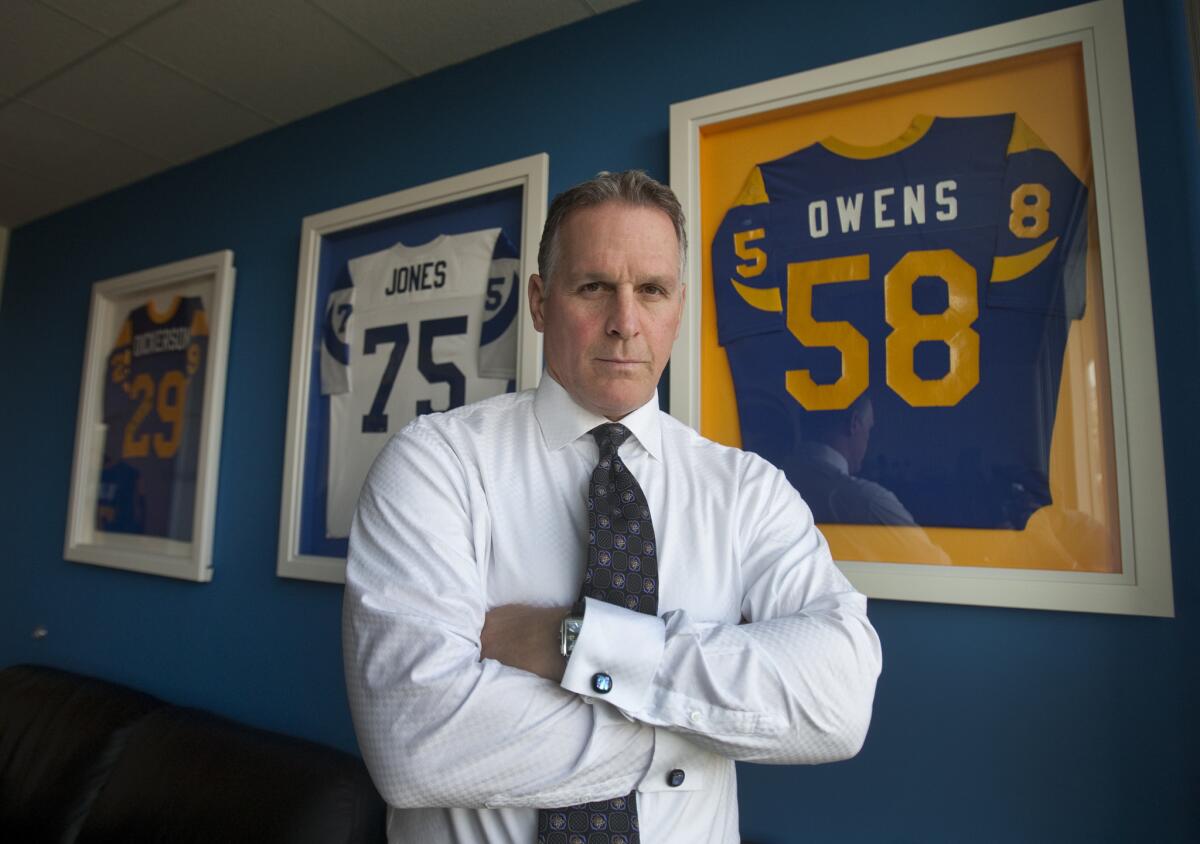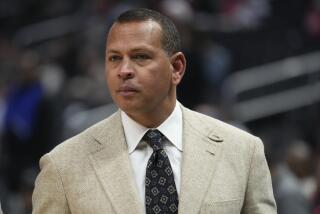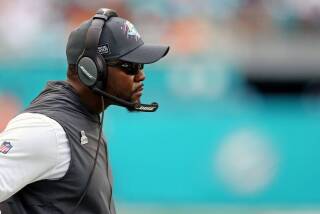Lawyer suing NFL says drug inspections are overdue

- Share via
Attorney Mel Owens can’t say for sure whether the surprise inspections of the medical staffs of three NFL teams Sunday was directly related to the lawsuit he’s working on, but he’s willing to make an educated guess.
“I would have to think so,” said Owens, among the lawyers for a group of more than 1,000 former players who have filed a class-action suit against the league for the alleged mishandling and dispensing of various painkillers and prescription drugs.
After their games Sunday, medical officials from three visiting teams -- San Francisco, Seattle and Tampa Bay -- were subject to unannounced inspections and bag searches by Drug Enforcement Administration agents either at stadiums or airports. The 49ers, Seahawks and Buccaneers confirmed the inspections took place.
If the inspections uncovered any problems, NFL spokesman Brian McCarthy said, the league doesn’t know about it. “Our teams cooperated with the DEA today, and we have no information to indicate that irregularities were found,”; he wrote in an email Sunday afternoon.
Owens, a former standout linebacker for the Los Angeles Rams whose law practice is based in Laguna Hills, said he welcomed the news of the inspections.
“I thought to myself, ‘Finally somebody’s looking into it,’” he said by phone. “Because it’s been going on for decades. Even when I played, it was happening the way it was described.”
In a complaint filed in May in U.S. District Court in San Francisco, more than 500 retired players who are plaintiffs in the lawsuit claimed the NFL “has intentionally, recklessly and negligently created and maintained a culture of drug misuse, substituting players’ health for profit.”
The number of former players in the suit has more than doubled since then, Owens said.
Owens, a first-round pick who played for the Rams from 1981 through 1989, said that in his experience, painkillers and prescription drugs were constantly distributed, and not just by team doctors but by trainers and others who were not permitted by law to do so. He said his clients say the same.
“You have to keep track of what you keep, guys,” Owens said. “I know they raided the teams afterwards. But on the plane back? On the plane over? The next day? And I think some of this was going to come out in discovery, but you have to account for every pill that goes in and every pill that goes out. That’s just law. And they won’t be able to do that, because nobody’s keeping track.
“It happens wherever it’s necessary. There’s guys getting injected on the sideline, I’ve seen it. It’s not a secret. You ask any NFL player, `Have you seen guys getting injected on the sideline?’ Of course. On the plane? Of course. In the hotel, on the buses, on the plane? Of course. By the trainers? Of course.”
Added Owens: “I’ve been saying forever that you can’t have the NFL as it is without over-medicating the players. It’s so haphazard and lackadaisical in the NFL, and there’s no oversight.”
More to Read
Go beyond the scoreboard
Get the latest on L.A.'s teams in the daily Sports Report newsletter.
You may occasionally receive promotional content from the Los Angeles Times.











